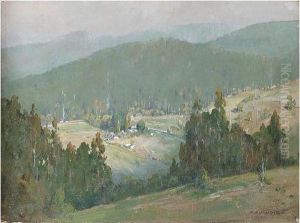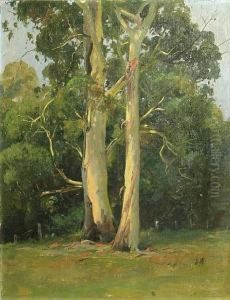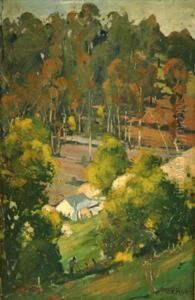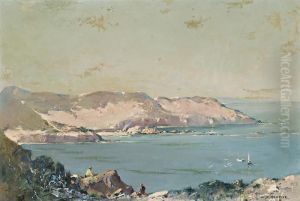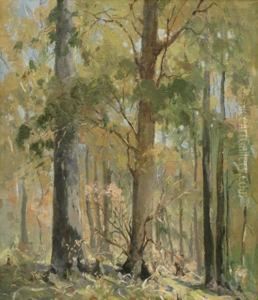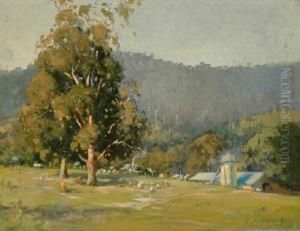Charles F. Mudie Paintings
Charles Edward Mudie was a notable English publisher, writer, and the founder of Mudie's Lending Library and Mudie's Subscription Library, although he is not primarily known as an artist. Born on October 18, 1818, in Cheapside, London, Mudie was an influential figure in the Victorian literary world, significantly impacting the reading habits and book distribution of the era.
Mudie's early career began in the field of education, but he quickly moved into the bookselling and lending business. In 1842, he established Mudie's Select Library in Bloomsbury, which allowed subscribers to borrow books rather than purchase them, a novel concept at the time that greatly broadened access to literature. The library became particularly well-known for its vast collection of Victorian literature and its role in influencing which books became popular or were deemed 'acceptable' for the reading public.
Mudie's Select Library became a cornerstone of Victorian culture, with a stock of over 25,000 volumes by the 1850s and multiple branches in London and across the United Kingdom. Mudie was known for his strict selection process, favoring morally and intellectually uplifting works, and excluding those he considered to be of poor taste or questionable morals, which sometimes led to controversy and criticism from authors and publishers.
Beyond his contributions to book distribution, Mudie also dabbled in writing and publishing. He published a few poems and theological tracts, and his library helped to promote and circulate the works of many famous authors of the time, including Charles Dickens, George Eliot, and Thomas Hardy.
Charles Mudie's impact on the literary world extended beyond his lifetime, with his lending library model influencing public library systems and the general approach to book distribution. He passed away on October 28, 1890, leaving behind a legacy as a pioneer of the lending library system and a shaper of Victorian literary tastes.
